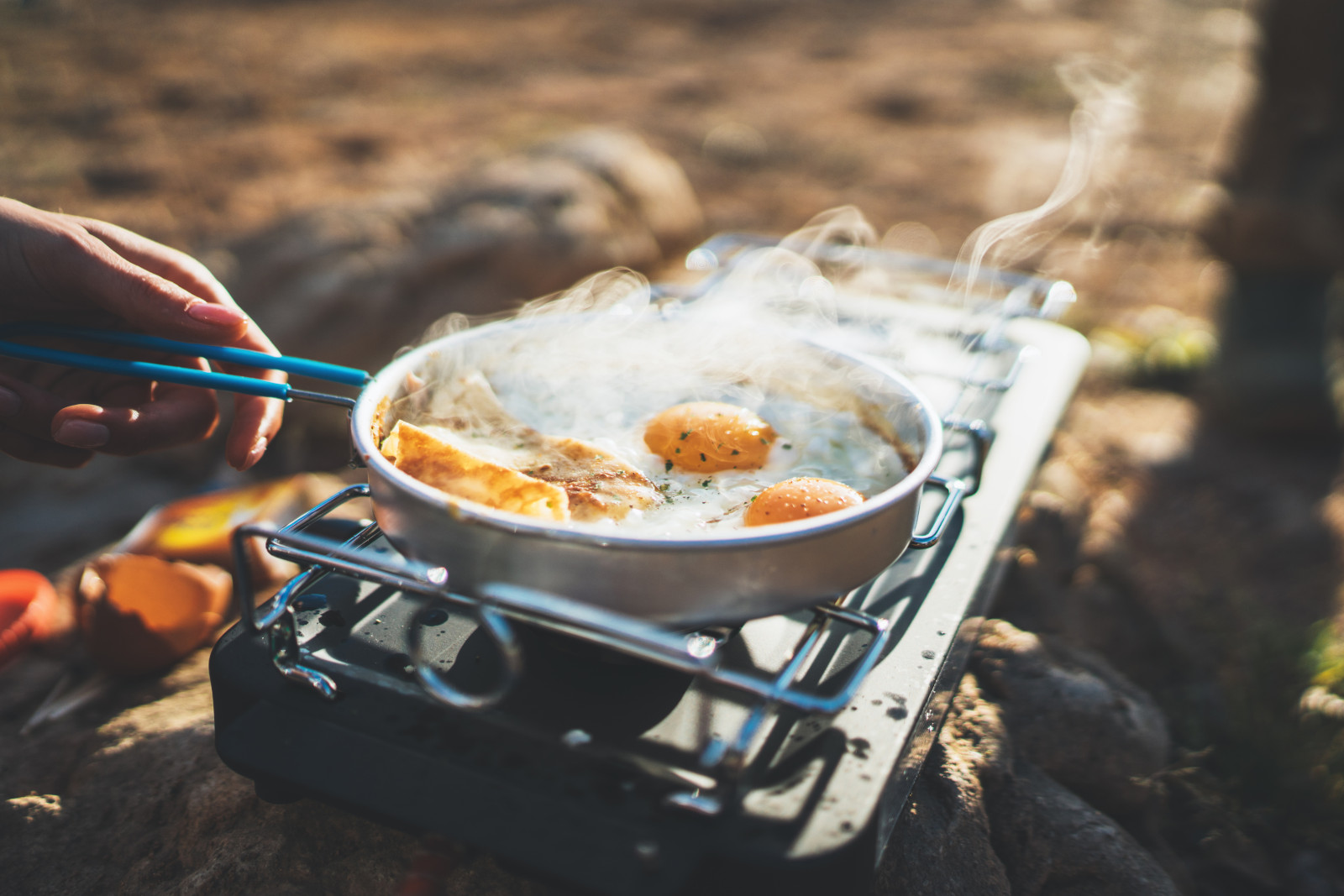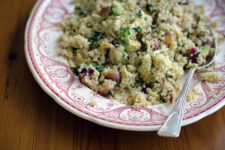If you’re more likely to associate camping with foods like hot dogs cooked over an open fire or gooey s’mores that leave you with a sugar rush, you may think you have no other choice but to leave your healthy eating habits at home during your next trip into the woods. However, as one nutritional therapist reveals, that’s not necessarily the case.

Picking the right camp foods requires ticking a few key boxes. You likely want to choose items that travel well under not-exactly-ideal conditions. You also probably want food that’s going to be easy to cook and still provide all the nutrients and energy you need to fuel your outdoor adventures. For all of the above, Alison Orr, a nutritional therapist with YorkTest, recommended a few — possibly unexpected — items.
Go Beyond Granola and Jerky
While some classic camp foods, Orr noted, are classics for a reason — like shelf-stable, easy-to-eat-on-the-go granola and energy-packed protein bars — there are also a few fresh produce items that can add a little extra something to your next camp meal.
Orr recommended packing mushrooms, brussels sprouts and zucchini for your camping trip, as hardy vegetables like brussels sprouts and zucchini pack and travel well, while all three can be easily roasted on a campfire.
The produce items she said to leave at home? Leafy greens (which won’t hold up well over a trip and aren’t your most calorie-rich option) and avocados.
If you’re going on a longer trip and don’t think even the hardiest zucchini will last in your pack, Orr also said not to hesitate to grab a few canned staples that come with their own health benefits, like tuna, sweet corn and potatoes, which offer protein and extra energy.

Quick Camp Cooking Tips to Get From Backpack to Bon Appétit
But if you’re not an avid camper (or at least not an avid camper who actually cooks during a camping trip) and you have a history of relying on dehydrated meals during your backpacking excursions, you still may not understand quite how to use that fresh, healthful produce and those canned items during your trip. Here are a few tips to get you started:
1. Go the foil route.
Foil is your friend while camping. Portable and lightweight, a little aluminum foil makes a compact pouch perfect for cooking fresh veggies over the fire, no extra work on your end required.
2. Think one-pot meals.
Similarly, don’t over-complicate things. Go for one-pot or one-dish meals like oatmeal for breakfast (some savory oatmeal might be amazing with those mushrooms!) and protein bowls packed with potatoes, corn, tuna and veggies later in the day.
3. Invest in a do-it-all camp kit.
If you plan on camping often (and with a tent and backpack rather than an RV), consider investing in a camp cooking kit that contains everything you need to cook on the go with minimal weight and supplies. Many kits come with a portable camp stove, as well as a few dishes that pull double duty as both your cookware and tableware.







